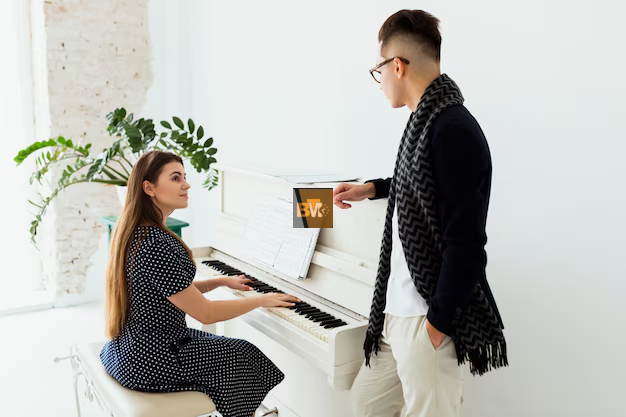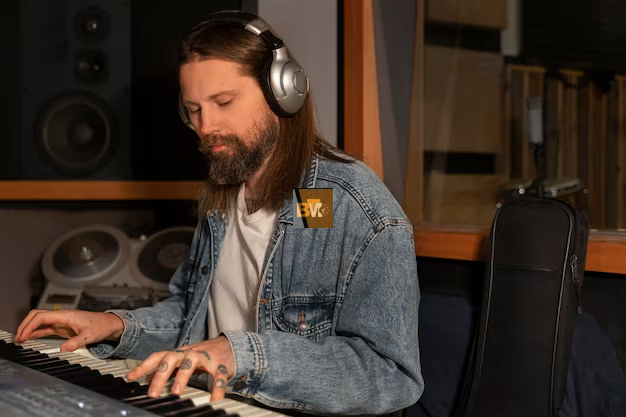Learning the piano as an adult isn’t something people typically rush to do. You probably haven’t fantasized about playing “Für Elise” in front of an adoring crowd. Yet, something about those ivory keys still calls, even if learning a new skill feels a little out of reach.
The challenge of adult piano lessons is that they demand not just time but patience—two things that adults rarely have in abundance.
So, here’s how to make those piano dreams a reality, even if you’re convinced you’re too old to start.
1. Hire a Local Piano Teacher
When learning piano as an adult, a good teacher can make or break your experience. A supportive, skilled instructor doesn’t just correct your mistakes—they guide, encourage, and help you see progress even when you’re convinced you’re moving backward.
In London, adult piano lessons are becoming more prevalent. Kensington, Hampstead, and Canary Wharf are especially dense with piano students seeking private lessons, thanks to London’s large population of adult learners. However, if you’re one of the students, simply run a search for “private piano lessons near me” and take the time to find someone who understands both your goals and your quirks.
WKMT, for instance, offers classes in such areas, with alternatives like in-studio sessions, home tuition, and online lessons—ideal for people with demanding schedules who live in London.
Remember, a good teacher will recognize when you need a push and when you need a pat on the back.
2. Invest in Your Comfort
Success hinges on having a conducive learning environment. Get yourself a great digital piano or sturdy keyboard if you can’t play the piano on your own. It’s easy to skimp if you don’t have a grand piano, but if that’s the case, at least make sure the one you have isn’t collecting dust.
Finding something that suits you doesn’t have to cost a fortune. No matter if it’s a grand piano or a professional keyboard, the goal is to provide a realistic tactile experience.
3. Use Your Adult Mindset to Your Advantage
As an adult, you have advantages children don’t. You understand the value of time and effort. You don’t need the instant gratification that younger learners crave. You’ve learned to manage your expectations and understand that slow progress is still progress.
Learning as an adult in London typically means balancing work and social obligations. Studios like WKMT can offer lessons that are convenient for Londoners’ schedules so they can meet these demands. Schedules are flexible enough to accommodate adult students’ needs, whether first thing in the morning before work or last thing at night after a long day.
One of the biggest hurdles in adult learning is the tendency to get frustrated when things aren’t moving quickly. Remember, you’re not competing with anyone. Your pace is your own, and that’s okay. Focus on the process rather than the destination.
4. Track Your Progress
One of the most motivating aspects of learning is seeing progress. Whether hitting a new note or getting through a challenging passage, tracking your success will keep you motivated. Take note of what you’ve accomplished, even something small, like learning a new chord or playing a scale without mistakes.
Participating in a structured program, such as those provided by WKMT, makes it much easier to monitor progress in London. Their instructors check in with you often to make sure you’re making progress toward goals at your speed. Students have the chance to perform at local venues, thanks to the city’s thriving music culture, and showcase their progress.

It might seem trivial, but acknowledging these small wins is essential. Over time, these little victories will add up, and you’ll begin to see how much you’ve improved. When things feel like they’re moving too slowly, remind yourself of how far you’ve come.
You don’t need to aim for perfection; strive for progress. Each step forward, no matter how small, is a step toward your goal.
5. Embrace the Struggle
There’s a very specific, often unsung, part of learning the piano that no one talks about: the struggle. The part where you fumble through new concepts, hit wrong notes, and wish you could undo the last hour of frustration.
For some, this is where the journey ends. They throw their hands up and declare, “I can’t do this.” But in truth, this struggle is where you’ll see the most growth. It’s the point where your brain forms new neural connections, teaching you to think differently.
Finding a way to fit in with practice time with the hectic pace of life in London is a common challenge for adult learners. A big difference can be made by incorporating brief, concentrated practice sessions in between business meetings or while commuting. With home tuition options, students can practice whenever it is convenient for them without having to worry about transportation.
6. Make it Fun
Don’t make learning the piano all work and no play. It’s easy to get bogged down in the technicalities and challenges, but remember to have fun. Play music you love, even if it’s just a simple song. Enjoy the music, not just mastering it.
London offers a plethora of ideas to make piano lessons fun.
Discover countless ways to stay motivated in this city, from watching live performances at prestigious venues like the Royal Albert Hall to experiencing music genres influenced by its rich culture. An additional method that WKMT makes the experience worthwhile is by organizing student concerts, when students have the opportunity to perform in front of an audience.

Conclusion
The road to playing the piano is long and tortuous, more often frustrating than fulfilling. But if you follow these steps, you’ll start to progress, and maybe you’ll make some music along the way.
Adult students in London are in a special position to take advantage of the city’s many educational possibilities and world-renowned music scene. Maintaining a regular lesson schedule is essential, whether you’re juggling a busy city work with family obligations or vice versa. Aspiring pianists in London have options, such as WKMT’s adaptable sessions, individualized lessons, and student-centered approach, which puts achievement within grasp.
Remember, consistency is key, and the rewards come not from learning to play a piece but just from showing up. Piano is less about perfection and more about persistence. Keep at it, and you’ll hit the right notes.







Leave a Reply